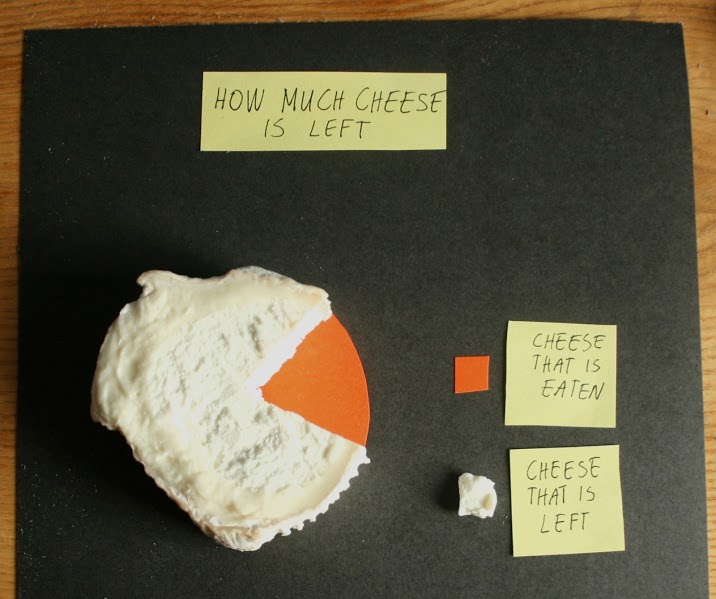
Andrius Uzkalnis (AU): Revolution in Ukraine. Each revolution – it’s not only barricades and stuff, but also very complicated and effort demanding PR activity.
Goals are achievable not only by using weapons and physical force. Public and World’s opinion are also very powerful influencers.
Ukrainian revolution as a product for consumer: is it successful or not?
One of the best PR specialists in Lithuania: Mykolas Katkus (MK). He knows that reality has often one path, the other one could be taken by visuals or texts.
What if Ukrainian opposition would try to sell revolution as a product, and they would ask you for advice, but they would buy only one. What it would be?
MK: there are two kinds of revolutions: first – these which are led by Robespierre and second – these which are led by Gandhi.
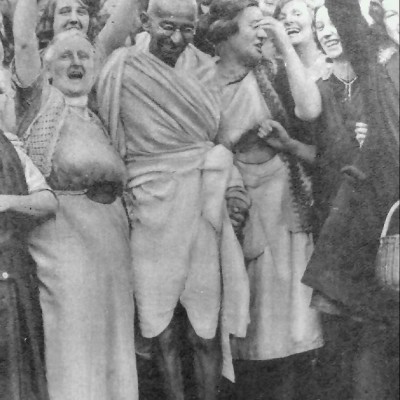
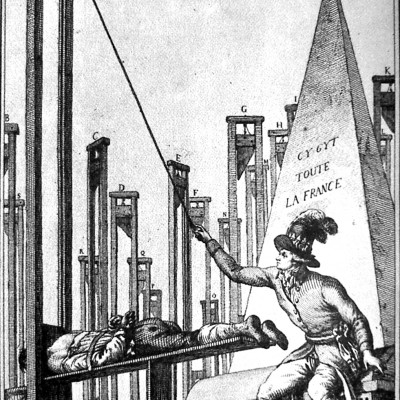
Gandhi revolution is much better choice. Because Robespierre way, is the way, where heads fly off. And we do see opposition, which wants to sell Gandhi revolution, sometimes (like in all revolutions) takes Robespierre path (the proof of this is information, which we do get from Ukraine). Anyways, in general, revolution (at least in the West) looks rather good than bad. Of course, that picture is totally different in the region, which is controlled by Ukraine’s east neighbor
AU: Talking about image: Molotov cocktails – these doesn’t grace the revolution from the PR perspective, isn’t?
MK: of course it doesn’t. Everyone likes Gandhi revolution (or Landsbergis revolution: peoples hand-in-hand singing and waving flags and etc.). When everyone waits for the tanks with joined hands, and these tanks turns a side. These stories are miracles and these are truly beautiful.
Nothing is easy in Ukraine. This revolution is not the first one there. And all these Molotov cocktails, which flew the world in eye-blink (even bottles with etiquettes from Lithuanian bear)…
AU: “Kanapinis” (“Cannabis” in Lithuanian)!
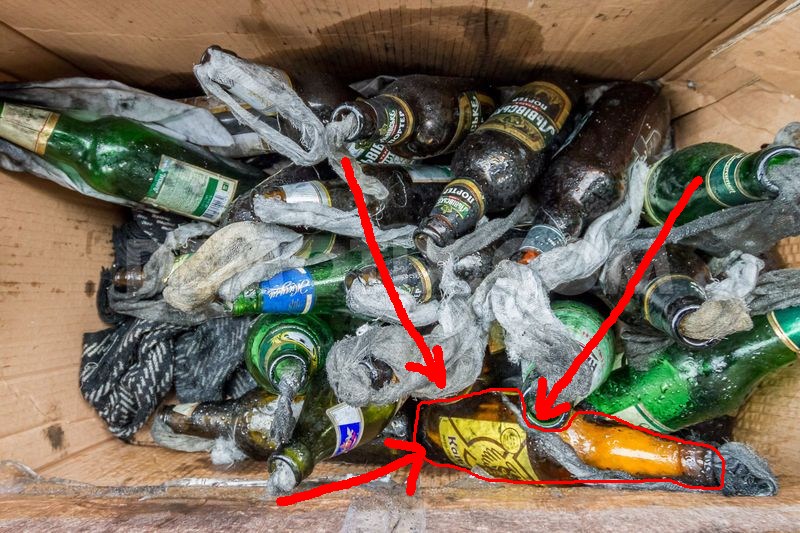
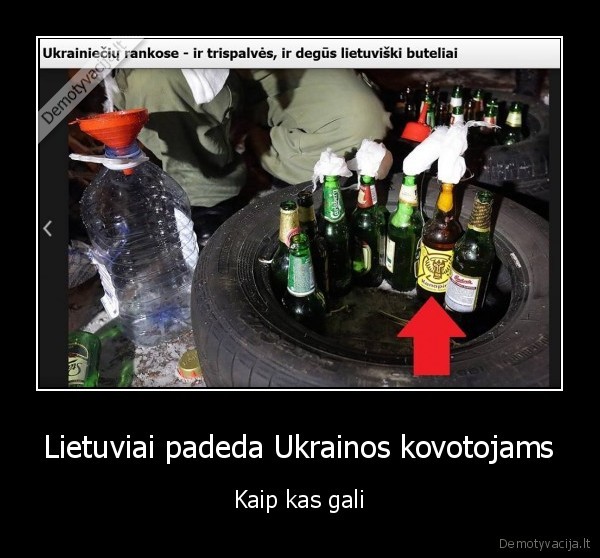
MK: Yes, “Kanapinis” – this I call successful product placement!
However this is not the most beautiful picture (Molotov cocktails). But in other hand, West do understand that it’s about people with naked hands, which goes against fierce regime. And as soon as we won’t see militioniers on the Lynch, as soon it would look quite good.
AU: Let’s look from other side. What you would say if Putin would come to you asking to settle Maidan (if you’d decide to sell your soul to the dark side), to put Ukraine on her knees against Russia’s side and do it in such a way, that all the world would see Russia as a good hero.
MK: Vladimir Vladimirovich has better experience in dark propaganda ways than me much-much more times. And all Russia’s propaganda…
My most favorite book was Tolkien’s “The Lord of the rings” – it is a story about hard choices, where you should take bad or good side. The other good gifted writer Nick Perumov wrote kind of extension of this story, kind of different way of story – in more dark and bad ways. It is called “Ring of darkness”, where he converted all simple “The Lord of the rings” storyline (what is good and what is bad, who wins, who loses) into something different. It did it in different way: “what if good is not good but more like evil?”; “what if evil is not so evil?”.
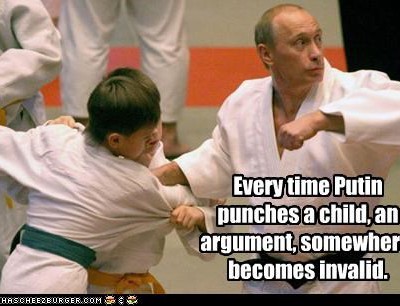
This kind of relativity is distinctive to Russia creativity. Distinctive to mature post Soviet period. And Russians do this very job well. Fantastically well. So the Russia’s propaganda now tries to convert Ukraine’s kind of simple narrative (good against evil) into something different. It converts it into: “Who’s Klitschko?”, “what wants some of Ukraine’s opposition?” “who are banderovcy?”, “where they came from?”, “what masons, Jews, Lithuanians, Chechens does there?”. Or into something similar. These small details, which doesn’t change the picture much (even if they would appear to be true) often turns into big things – into opinion makers, which Russia people believes. Russia media succeeds to convince all these simple-minded peoples in the entire world – especially these, which lives in Russia.
AU: then Russia tries to sell this, very popular, product: theory of conspiracy? Theory, that nothing is so simple: this is not just some Ukrainians, who wants to go to Europe and do whatever they want in whatever the way they want to; and that’s not just about that they do not want to go to former Soviet’s Customs Union. Everything is complicated here: jews, Lithuanians with “Kanapinis” bear, banderovcy… Let‘s remind who’s „banderovcy“.
MK: Please you do explain*
* – banderovcy is the term, which describes “to much Ukrainian” point of view of someone, who been called like that. Anyway, the meaning of this term is very complicated and used very much in all kinds of propaganda as a negative one.
AU: Maybe we are talking about those, who opposed to Soviet government…
MK: and then Russia’s propaganda called them as “Bandits”, quite similarly as they did with our Lithuanian partisans. They were called “bandits” in the same way as banderovcy been called “bandits”. Highlighting their existing or not existing connections with totalitarian regimes from other countries.
AU: and of course, they’ve been paid by someone else.
MK: yes
AU: In general, it is very important who paid who for Russia’s propaganda. Isn’t?
MK: Andrius, the question: “why Russia mastered that kind of propaganda?” comes from the fact, that they do have a country, where everybody trusts no one. The biggest miracle in Ukraine’s revolution is that people (also these, who came into streets) do not trust their government (which they did elected) the most comparing to all post-Soviet countries, that I had a chance to visit.
AU: more than in Lithuania?
MK: I think that the fact, that we did elected (I mean the part of Lithuanian voters who voted for him) A. Valinskas* just because we wanted to curse the existing government in the worst way we could think of shows quite well what we do think abou it. In Ukraine this urge of cursing is even bigger. They tend to see some oligarch’s actions behind every step Ukrainian government take. And any citizen’s free will (will to do something on his own without any kind of financial reward) was doubted.
* – some Lithuanian show-men
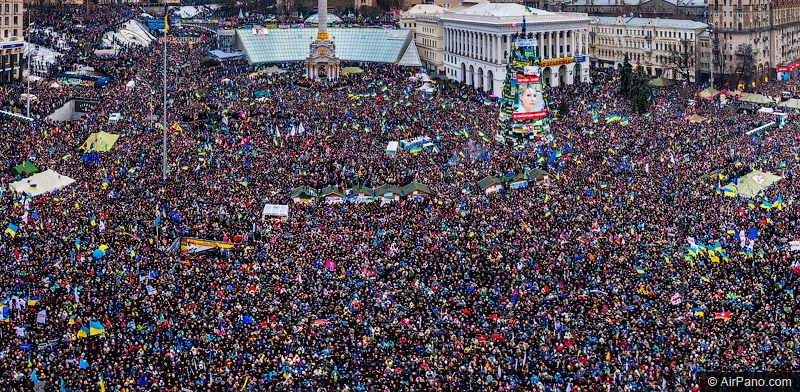
So the fact that middle class in Ukraine found motivation to change this thinking and come to the streets, and show that they do really care (regardless to who are in the opposition) was a surprise for everyone. It seems like they do care and and do have some principles. The idea, that government may do something horrible is acceptable only until Ukraine is not pushed backwards into Russia’s hands, kind of new Soviet union, into the symbol of worse living. It is even feasible to accept some kind of governmental corruption, until there is a hope to achieve something, until government does at least something reasonably rightful.
And this resignation from EU, for the bigger part of Ukrainian middle class, become as a kick, which forced to go to the streets and stand for the future of their children and for themselves.
Russia’s propaganda doesn’t accept this kind of people’s aspiration to the good side. It does accept only interests and money.
AU: if someone come somewhere, than someone paid them.
MK: Yes.
AU: … or someone would be paid in the nearest future…
MK: or fascists. There are also fascists.
AU: Yeah, fascists. If we’d talk about Russia’s propaganda, which we do see now, I was impressed by my recent readings on Russians blogs: nothing was changed since Sąjūdis* times , when assault of Lithuanian TV tower been organized by Nevzorov. The same thing: there are gunmans, which was specially trained by special forces, paid by special forces money and instructors all came from Washington.
*- this is Lithuanian opposition to Soviet Union, which won Lithuania a freedom in 1989-1991
MK: from Washington, yes. And from Vilnius.
AU: From Vilnius also now. Maybe that means that we are by one step higher now? They mention Vilnius when they do talk about that – that’s because why. They talk about us as a specialists, which are in one row with these Jews, masons and all others, who fights against Russia’s interests.
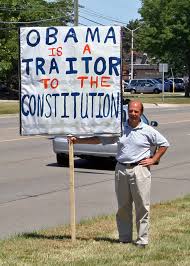
MK: Russians always needed good, easy and quality enemies, especially during the last decade. Like Georgia, or Chechnya, which could be defeated easily. Baltic States became very good enemy quite successfully – the enemy Russia needed so much. And from my recent experiences, Lithuania is the best! Lithuanians, how to say, is not like enemies-enemies (like Germans or British, or Americans), but Lithuanians are traitors. We’ve been like same kind, from the same tribe. We’ve been like a friends and now Lithuania is on another path than mother Russia and now we are traitors. For Russians who has more imperialistic or chauvinists viewpoint, this demonization of Lithuanians is very successful and easy. This thought of Lithuanians as traitors is beaten into their heads. So we’ve been used very successfully as an example of West decadence symbol. Decadence West, who tears Ukraine and beautiful Russia into pieces. This believe – It’s very strong. And it’s kind of useful for us on the other hand: it’s not so easy to influence our politics just by saying, that we must reject EU values and show us as unique enemy for Russia at the same time (you do not tell what to do to your enemy). What’s more interesting is the fact, that Ukrainians are shown as enemies now in Russia’s media during this revolution. And it seems like that is the sign that Russians (Russia’s propaganda) is starting to prepare to what would happen if Ukrainians would truly take different path than big mother Russia wants.
AU: because there were thoughts before, that Ukraine is “we”, Ukraine is Russia…I am now taking Kremlin discourse. And there is no any other language, than russian. Unless there are some Ukrainians, who can fight against Russia, who are kind of separatists, which is kind of Ukrainians with anomaly.
MK: Yes.
AU: And now what? Russia have started to convince itself, that Ukraine can be a separate country?
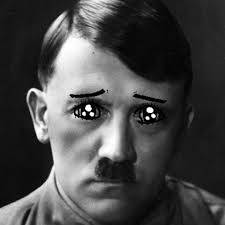
MK: You see, it became clear, that this discourse, this product placement (that they are same as we and they needs us) appears to be more dedicated for external consumption, when you talk about it more in details with Russians. It is similar to our pseudo nationalists (a bit fascists), who say that swastika is not German fascist symbol, but very old Lithuanian symbol and it has nothing to do with these bad fascists. But they do acknowledge, that swastika is very strong and good, and cute, and etc. symbol and Hitler did at least something right, when they gather inside their clubs. Same is with Russians – they do acknowledge, that they want to be world’s strongest power, that they want to rule all the World and the rule of Ukraine is very important part of this dream. But they do not want to send this exact message, when they do talk about that with outsiders. That’s why they tell them, that we’re just doing here something very little, they are our younger brothers, we just want to help them and etc.
AU: Revolution leaders. Former boxing champion as one of political leaders. That’s advantage or least bad thing, as there is no anyone other to choose from? Remember America: Arnold Schwarzenegger did washed his etiquette of former actor and fitness athlete very long and patiently, when he went to politics and started to rule California.
MK: He did it very well. He even won few terms of office in California.
AU: What picture of a political leader makes Klitschko as former boxing champion?
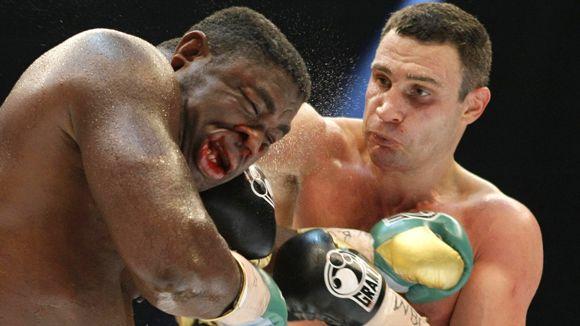
MK: Even closest Klitschko allies tells that he as a political leader needs more maturity and experience. In other hand, leaders learn very fast on barricades. And last Klitschko statements shows us, that he does his communication better and better. The fact, that Klitschko been raised in Ukraine politics even before revolution also indicates us the magnitude of peoples frustration about politics and their leaders in Ukraine. We see that in Ukraine and we do see that in Lithuania.
The rise of Klitschko, how to say, is similar to sayings, which we did and do have in Lithuania. The sayings, that we must put Justinas Marcinkevičius* or Andrius Mamontovas**, or Arvydas Sabonis*** or any other famous character in society as a president. Klitschko does match these Ukrainians values: he is true strong man, macho, he made his fortune with his fists, he won a lot of fights, he showed to the World the place of Ukraine in a boxing ring. He also have some inherent qualities, which are favorable in that perspective. It’s hard to say how he would succeed with this in Ukraine later on, but I already do not see Russia playing that card, which says, that he’s just a stupid boxer.
* – former poet. Dead now.
** – famous musician.
*** – former basketball athlete.
AU: You’ve mentioned barricades. Existing government and protesters (or these, who wants to be government) are in very unequal position, when you do think about revolution as a PR activity. Because one side – the government is sitting inside their boring cabinets with ties and suits and often are in defending position. They often need to tell why it is like it is and what to do so it won’t be worse and etc… The other side are on barricades. Military cars, fires – all these pictures are inspirational. Current government hasn’t inspirational pictures.

MK: Vytautas Landsbergis would have a lot stuff to advice for Ukrainian revolutionaries and he could also have something to advice for government. He did understood very well the force of symbols, when he were facing all these January’s activities, when Lithuania fought for it’s independence. What are symbols, how to take a stand, what to say, what to sing, what symbolic statements to make to the crowd, to the world and etc.
I do not think that government is in a bad position as a principle. Remember the “Yedinstvo” organized attack against supreme council during the Lithuania’s fights for freedom. It was a demonstration, rebellion against acting government. But our parliament didn’t made themselves as a party, who defends the existing status quo.
So, everything, in my opinion, depends on moral position, which been taken. Which moral position you take, what interests, you fight for.
Ukraine’s second side, Yanukovych government is more like undecided, what moral position it has to take. They are very determined somewhere and they are doubtful somewhere else. They did some quite good moves also: head of Ministry of Energy convinced protesters to step back when they came, because heating services would be terminated in all Ukraine. That was one of the examples when protesters lost one of moral fights against government.
So, symbols are very important. Molotov cocktail is a strong symbol. Singing peoples are also strong symbol. Fires. Barricades, helmets. All this do create some kind of picture in all the world, and people, who watched that on their screens they can identify themselves as ones or anothers.
AU: What wonders me, that governments do not understand what hole their ar sitting in when that kind of revolutions happens. We find that examples in all the world. Chauchesku (Romania) ¼ century ago in east Europe , Arabs spring… And all these governments, who been forced to leave had naive childish stubbornness. Like some kind of ostrich, which put his head under the sand, which do not want to see anything he doesn’t like. Why it happens? Isn’t there anyone who could advise them? Or they are just not listening? Why it is as it is?

MK: I happens in all kind of situations of all kinds of severity. It is very hard to assess the situation, when you are inside (it can be election headquarters, it could be a company, to which disaster strike in it’s business area). And it is even harder to come and advice for people from outside. And this crisis, which is happening in Ukraine now is a fundamental one, a very big one and no one saw it coming. If I remember well, it was an Ukrainian political analyst, who wrote an article one year ago, where he wrote, that this thing, like “orange revolution” cannot happen in Ukraine anymore, because people are disappointed with anyone in government. But it seems like it is happening now. It was very unexpected.
It is very… very hard to understand what’s happening around and take corresponding actions, when you’re inside. And I think that Yanukovych desperate actions, when he tries to save his face in the West and to control the revolution at the same time and all this dissatisfaction, makes his position as a looser one. Actually he can choose only from being cruel and bloody dictator (kind of Russian kind) either he would be needing to resign (in a worse or in a better way) and it seems like it is happening right now.
AU: this kind of cruel and bloody example more resembles not to Russia anymore but more to Syria or Yugoslavia kind.
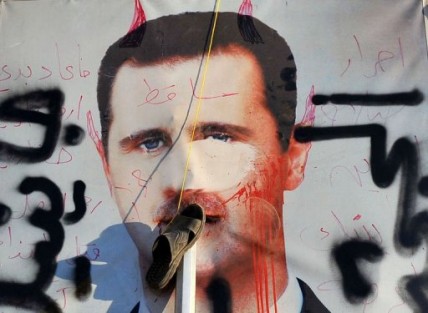
MK: Syria’s example could be the most representative here. As there’s also ethnic communities fight problems: Assad, as we know, is the member of one ethnic community, army is his ethnic community’s representatives also, rebels are members of other ethnic community. But we have even better example: peaceful demonstration which happened in Belarus maybe two years ago. I talk about jeans revolution. And Lukashenko disposed it in very fast and effective way. And his regime been conserved again for 3 or 4 years.
AU: so maybe Yanukovych also could deny to make fires or to protest if he could do that? There was an example of all kinds of prohibitions some time ago (to cover face, to go to demonstration and etc.). Nothing helped.
MK: The best answers been made by Russian analytics, angry Russian commentators, who told where and when problems could be solved (kind of captain Obvious advices), when and where the force was needed in order to solve the problem.
AU: How that could happened that Belarussian leader, much smaller country’s leader, who’s not assessed as very experienced PR specialist, but he managed to get himself better result. Better result, than much bigger country’s and much stronger (as it looks like) leader’s, PR specialist’s result? And he also did got this very strong Kremlin help…
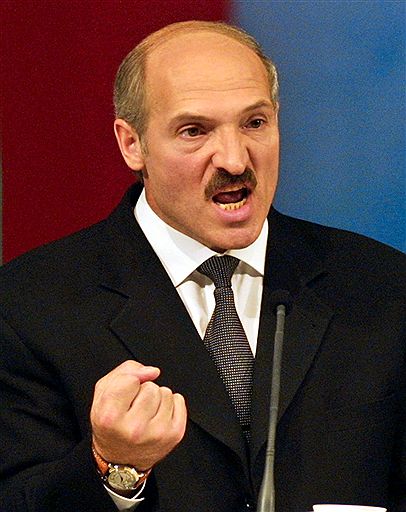
MK: I think, that the person, who takes decision to drawn his own country in blood, requires not only good PR experience, but it needs, how to say, some different qualities. That’s why Yanukovich… In other hand Ukrainians are not Byelorussians, they are older and they has very clear identity, language, history, their banderovcy… That’s one thing. The other thing is that not every person even under pressure can trigger atomic bomb explosion or to ask Berkut to slaughter all these peoples, which he doesn’t like.
AU: Everyone can talk, but not everyone can trigger that button…
MK: and thanks God for that…
AU: Thanks God for that I guess… If we would take a look into that from our side, from Lithuania side. Lithuania and Ukraine, without any doubt, are note neighbour countries (we do not have mutual border), but this Ukrainian revolution is taken like it’s own thing in Lithuania .
MK: yes.
AU: Our media’s performance (we have no strong media, by the way, especially when we do talk about foreign events) is fantastic! Newspapers, portals, Television, reporters on site – you find quite deep and detailed analysis everywhere. Lithuanian politics, famous figures and etc. are also taking action – putting our flag into Maidan, commenting it, public acts as chains of people and etc. Does it help to Ukraine somehow? Or we’re doing that more for ourselves, so we could feel like we did everything we could?
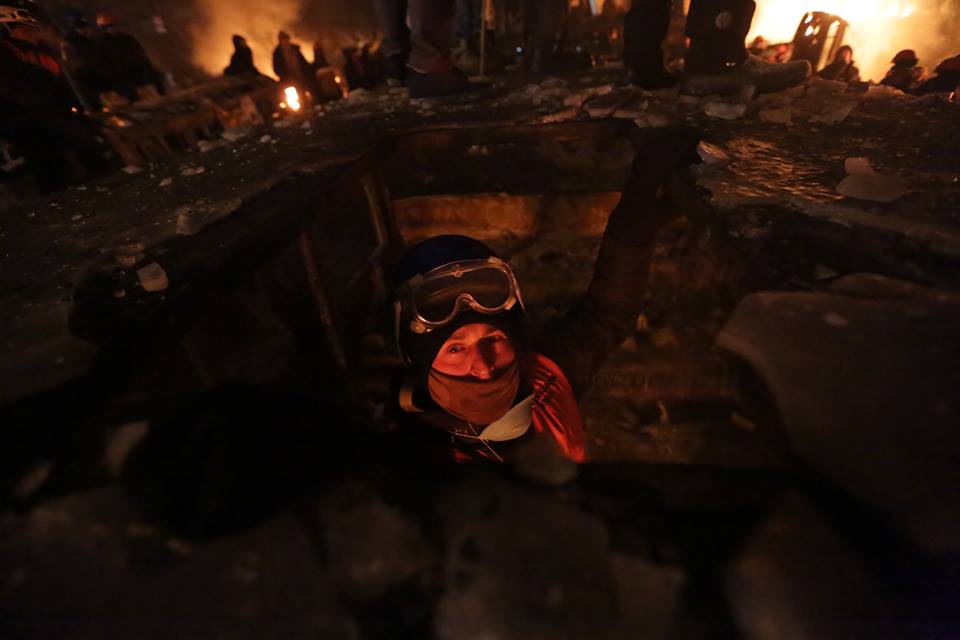
MK: I think that it does help us a lot firstly. As every thing we’re doing here means, that we are getting a point into our allies (opposing Kremlin) account. And this is not strange that Ukrainian revolution is taking negatively by peoples, who fights against national Lithuania interests. Starting with energetics (shale gas), Gasprom monopoly and etc. All these people quite intensively retranslate Russia’s propaganda stamps. Anyways, these happenings in Ukrainiane does resemble to what we had 13 years ago in Lithuania. It mobilize people, who do understand, that they do not have much to choose from in the same way. It is easier to understand, that there’s just no any alternative to EU now. And that’s also a good thing, similarly to a good influence, which had “Orange revolution” also.
AU: If we’d remember our January 13th and our “Sajūdis” , for us, as much as I remember (I was quite young at that time) it seemed to be very important and very interesting to see what is the support from foreign countries. Every smallest statement, public action near Soviet consulate, or Lithuanian flag rised somewhere else, or any kind of concert in that theme was very very clearly described here for us and we did paid a very much attention to that. Is it the same for Ukrainians?
MK: I even do not doubt that. Please do understand, that Ukrainians been (and are) living halfway in the Russia’s information influence. Like same musicians, like they have similar speech, like part of Ukrainians even speak only Russian. So when they see obvious lies… There is a good point made about news: media does cover everything very well, except that area, where you are a specialist. But when you do see obvious lies, obviously wrong reportage from Ukraine (which is now happening in Russia’s internal market) and when we do face the fact, that Ukraine is a big part of this Russia internal market.. It is obvious, that they want to get out of these lies somehow – that’s very natural and humane. And that fact that we do put fires and joining hands here in Lithuania and do support Ukrainians in this way, is also very important for Ukrainians. They want to understand that their fight has some meaning and future.
AU: Ukrainian revolution does develop very dynamically. And it really is in the first pages and in the first rows of news bulletins. Does anyone can take this position from her (Revolution)?
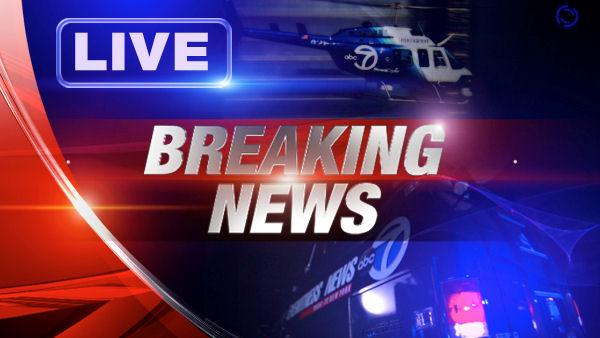
MK: of course. Bloody crackdown in Syria, bloody Assad’s crackdown – it felt out of first pages quite long time ago, regardless to the fact that there are quite much more victims, than in Ukraine. Same happened with Egypt movements after some time… And that would happen with Ukraine. And Kremlin (and Ukraine’s government) is also seeking for the ways to put Ukraine from the first pages somehow and reduce world’s pressure on them.
In other hand, when revolution doesn’t have distinctive leader, it finds her ways very hard. Because someone should take decision and responsibility.
AU: Sochi Olympic games would happen. Who would suffer from what in the perspective of PR.
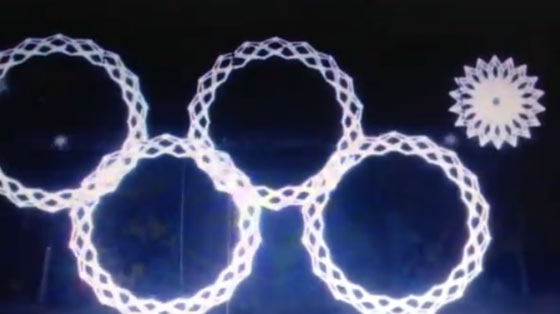
MK: Undoubtable, things that are happening in Ukraine has catastrophic meanings for Sochi Olympic games. It is neighbor country. It is also a country to which all this Sochi Olympic PR been oriented. I think that Sochi Olympic games won’t escape some Ukrainian accents. It can be a very big PR defeat, which is a very big of a concern for Putin at the moment, and which he tries to reduce as much as possible.
AU: so maybe he should show that Ukraine is not his concern at all?
MK: it is very hard to pretend that nothing happens, when it is the biggest Russia’s geopolitical event for time being. Especially when so much efforts been put to that (remember Lithuanian milk problems, when it was banned for Ukraine, just for to show, that EU cannot do anything about that). So I think it is impossible.
AU: something similar happened when Lithuania became part of NATO. There were a lot of money raised for that and it didn’t helped. Then they needed to cover that defeat somehow. And it was a very heavy defeat by the way.
MK: Putin hasn’t so much influence in Russia at that time – that was a good thing to us. Putinism as a doctrine wasn’t so strong at that time as it is now. And now they are much more creative, they took their lessons during “Orange Revolution”, they learned to use social network. They created this example of family, this narrative of what ideal family should look like and successfully exported it. Putinism been improved. And I think we would see some more colors here.
AU: your prognosis: how much time it would take for Ukraine’s revolution to win?
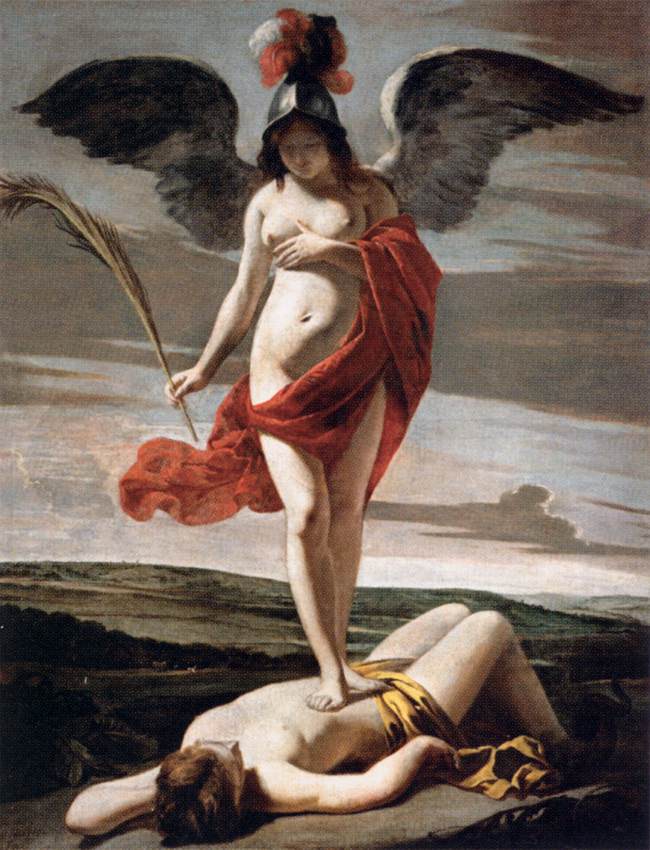
MK: It is hard to say if it would win or not yet. It is obvious, that Ukraine’s revolution has everything it needs, but one major thing: it doesn’t have a leader. There is no any person, who been trusted by protesters, which would trust himself and his mission. There is no leader like it was Gandhi or Landsbergis or even like Julia Timoshenko and Yushchenko. Someone should take action, should it be Klitschko or Yatsenyuk. Someone should decide what to do. If this revolution would stay as it is now – without any shape, than it would transform into chronic stage and it would fall out from first pages. And it would be sooner or later extinguished.
AU: thank you for helping me to sell Ukrainian revolution.

